How to cite this page Comment citer cette page
Items
In item set
People
-
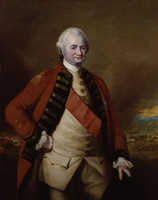 Clive, Robert British East India Company official
Clive, Robert British East India Company official -
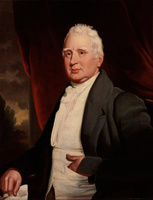 Cobbett, William English radical pamphleteer, journalist, and politician. Cobbett held strongly racist views and was an important working-class opponent of the British abolition movement in the early nineteenth-century.
Cobbett, William English radical pamphleteer, journalist, and politician. Cobbett held strongly racist views and was an important working-class opponent of the British abolition movement in the early nineteenth-century. -
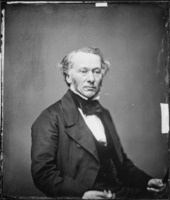 Cobden, Richard British Radical and Liberal statesman and manufacturer in the nineteenth century.
Cobden, Richard British Radical and Liberal statesman and manufacturer in the nineteenth century. -
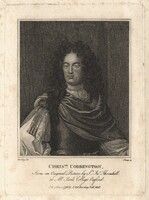 Codrington, Christopher Slave-owner and colonial administrator in late seventeenth and early eighteenth-century Barbados. Codrington was Governor of the Leeward Islands from 1699 to 1704, as well as being a major benefactor of All Souls College, Oxford and their formerly named Codrington Library.
Codrington, Christopher Slave-owner and colonial administrator in late seventeenth and early eighteenth-century Barbados. Codrington was Governor of the Leeward Islands from 1699 to 1704, as well as being a major benefactor of All Souls College, Oxford and their formerly named Codrington Library. -
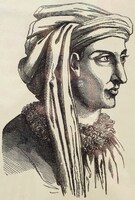 Coeur, Jacques Grand bourgeois parvenu, il devient le grand argentier du roi Charles VII en 1439, dans le contexte de crise de la fin de la guerre de Cent Ans. Il réorganise la fiscalité et développe le commerce, notamment avec l’Italie et l’Egypte. Sa chute est aussi spectaculaire que son ascension, elle le contraint à l’exil. Il meurt sur l’île de Chio lors d’une expédition navale contre les Turcs.
Coeur, Jacques Grand bourgeois parvenu, il devient le grand argentier du roi Charles VII en 1439, dans le contexte de crise de la fin de la guerre de Cent Ans. Il réorganise la fiscalité et développe le commerce, notamment avec l’Italie et l’Egypte. Sa chute est aussi spectaculaire que son ascension, elle le contraint à l’exil. Il meurt sur l’île de Chio lors d’une expédition navale contre les Turcs. -
Cognac, Lobie French Guyanese artist
-
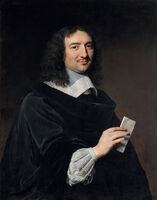 Colbert, Jean-Baptiste Jean-Baptiste Colbert was Intendant of Finances, Secretary of the Maison du Roi, and State Secretary to the Navy under Louis XIV. He developed industry and trade, reorganising state finances, laws, and the navy. The navy was a crucial military tool for French colonialism. Under Louis XIV, France was one of the most powerful colonial empires, with a large presence in North America and the Caribbean. Colbert founded the French West India Company and French East India Company in 1664. Thanks to the slave trade, the fur trade, and other resources extracted from far away lands, France experienced unprecedented commercial growth. Louis XIV charged Colbert with writing set rules to organise slavery, which had been abolished in the kingdom in 1315, but was practised in its colonies, especially in the Caribbean. Colbert thus compiled rules sent by local governors and turned it into a piece of legislation coined the "Code Noir", which became a royal edict two years after he died.
Colbert, Jean-Baptiste Jean-Baptiste Colbert was Intendant of Finances, Secretary of the Maison du Roi, and State Secretary to the Navy under Louis XIV. He developed industry and trade, reorganising state finances, laws, and the navy. The navy was a crucial military tool for French colonialism. Under Louis XIV, France was one of the most powerful colonial empires, with a large presence in North America and the Caribbean. Colbert founded the French West India Company and French East India Company in 1664. Thanks to the slave trade, the fur trade, and other resources extracted from far away lands, France experienced unprecedented commercial growth. Louis XIV charged Colbert with writing set rules to organise slavery, which had been abolished in the kingdom in 1315, but was practised in its colonies, especially in the Caribbean. Colbert thus compiled rules sent by local governors and turned it into a piece of legislation coined the "Code Noir", which became a royal edict two years after he died. -
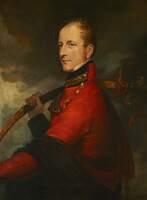 Cole, Galbraith Lowry British army officer and colonial administrator. Cole served as Governor of Mauritius from 1823 to 1828 and then the Cape Colony from 1828 to 1833.
Cole, Galbraith Lowry British army officer and colonial administrator. Cole served as Governor of Mauritius from 1823 to 1828 and then the Cape Colony from 1828 to 1833. -
Cole, Tim Professor of Social History, University of Bristol
-
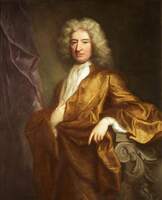 Colston, Edward English slave trader, merchant, philanthropist, and politician. Colston was a Member of the Royal African Company from 1680 to 1692 as well as Deputy Governor from 1689 to 1690. He was also Member of Parliament for Bristol from 1710 to 1713.
Colston, Edward English slave trader, merchant, philanthropist, and politician. Colston was a Member of the Royal African Company from 1680 to 1692 as well as Deputy Governor from 1689 to 1690. He was also Member of Parliament for Bristol from 1710 to 1713. -
Colton, William Robert British sculptor in the late nineteenth and early twentieth centuries. Some of his notable colonial works include the Boer War Memorial in Worcester and the Royal Artillery Boer War Memorial in London.
-
 Columbus, Christopher Italian colonial explorer and navigator from the Republic of Genoa in the fifteenth and early sixteenth centuries. His four transatlantic voyages, starting from 1492, paved the way for the European colonisation of the Americas.
Columbus, Christopher Italian colonial explorer and navigator from the Republic of Genoa in the fifteenth and early sixteenth centuries. His four transatlantic voyages, starting from 1492, paved the way for the European colonisation of the Americas. -
Combe, Michel French soldier who helped to create the Champ d'Asile, a short-lived French colony founded by 120 Bonapartist officers, in Texas in 1818. Combe later fought in Algeria.
-
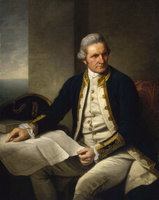 Cook, James British colonial explorer, cartographer and naval officer in the eighteenth century. Cook is most well know for his three voyages (1768-1771; 1772-1775; 1776-1779) in the Pacific Ocean, which set off British colonial expansion into the region. During his first voyage, Cook's first encounter with the Māori people in New Zealand ended in the deaths of nine Māori. In 1779, during his third and final voyage, Cook was killed trying to take Kalaniʻōpuʻu hostage, who was the ruling chief (aliʻi nui) of the island of Hawaii at the time. The legacy of Cook's expeditions, and in particular its consequences for the indigenous people of the Pacific Ocean, has been highly contested in the present. In 2019, for instance, the British government expressed its regret for the killing of Māori people during Cook's first voyage, although it stopped short of a full apology. In 2024, a statue of Cook in Melbourne, Australia was sawn off in protest over the Australia Day public holiday, with the words "THE COLONY WILL FALL" graffitied on the plinth underneath.
Cook, James British colonial explorer, cartographer and naval officer in the eighteenth century. Cook is most well know for his three voyages (1768-1771; 1772-1775; 1776-1779) in the Pacific Ocean, which set off British colonial expansion into the region. During his first voyage, Cook's first encounter with the Māori people in New Zealand ended in the deaths of nine Māori. In 1779, during his third and final voyage, Cook was killed trying to take Kalaniʻōpuʻu hostage, who was the ruling chief (aliʻi nui) of the island of Hawaii at the time. The legacy of Cook's expeditions, and in particular its consequences for the indigenous people of the Pacific Ocean, has been highly contested in the present. In 2019, for instance, the British government expressed its regret for the killing of Māori people during Cook's first voyage, although it stopped short of a full apology. In 2024, a statue of Cook in Melbourne, Australia was sawn off in protest over the Australia Day public holiday, with the words "THE COLONY WILL FALL" graffitied on the plinth underneath. -
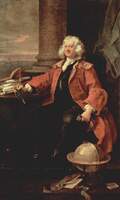 Coram, Thomas English sea captain and philanthropist who created the Foundling Hospital in London. Coram founded a shipyard in Massachusetts in 1694, and was later appointed as a trustee of the Georgia Colony in 1732.
Coram, Thomas English sea captain and philanthropist who created the Foundling Hospital in London. Coram founded a shipyard in Massachusetts in 1694, and was later appointed as a trustee of the Georgia Colony in 1732. -
Cornell, David British sculptor
-
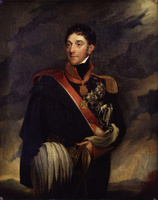 Cotton, Stapleton, 1st Viscount Combermere British Army officer, politician, colonial administrator and slave-owner. Cotton came from a family with extensive involvement in British slave-ownership in the Leeward Islands in the Caribbean. Sir William Stapleton (?-1686) was Governor of the Leeward Islands from 1671 to 1686 and acquired a number of estates in Antigua, St Kitts, Nevis, and Montserrat. Stapleton Cotton (1773-1865), Baron Combermere (from 1814) and Viscount Combermere (from 1827) inherited the family interest and became the co-owner of two enslaved labour-estates in St Kitts and Nevis in the 1820s. Upon abolition, Cotton received £3,739 in compensation for 227 enslaved people on his estate in St Kitts, and £3,465 for 193 enslaved people on his estates in Nevis. In 1862, Cotton transferred his Caribbean estates to his son Wellington Henry (1818-91), 2nd Viscount Combermere, with the family interest in the region lasting into the early twentieth century. In addition to his involvement in slave-ownership, Cotton also served in various capacities as a military officer and colonial administrator in the Caribbean, Ireland, and India. From 1817 to 1820, Cotton served as Governor of Barbados, before later becoming Commander-in-Chief in Ireland from 1822 to 1825 and India from 1825 to 1830.
Cotton, Stapleton, 1st Viscount Combermere British Army officer, politician, colonial administrator and slave-owner. Cotton came from a family with extensive involvement in British slave-ownership in the Leeward Islands in the Caribbean. Sir William Stapleton (?-1686) was Governor of the Leeward Islands from 1671 to 1686 and acquired a number of estates in Antigua, St Kitts, Nevis, and Montserrat. Stapleton Cotton (1773-1865), Baron Combermere (from 1814) and Viscount Combermere (from 1827) inherited the family interest and became the co-owner of two enslaved labour-estates in St Kitts and Nevis in the 1820s. Upon abolition, Cotton received £3,739 in compensation for 227 enslaved people on his estate in St Kitts, and £3,465 for 193 enslaved people on his estates in Nevis. In 1862, Cotton transferred his Caribbean estates to his son Wellington Henry (1818-91), 2nd Viscount Combermere, with the family interest in the region lasting into the early twentieth century. In addition to his involvement in slave-ownership, Cotton also served in various capacities as a military officer and colonial administrator in the Caribbean, Ireland, and India. From 1817 to 1820, Cotton served as Governor of Barbados, before later becoming Commander-in-Chief in Ireland from 1822 to 1825 and India from 1825 to 1830. -
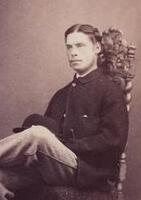 Coulson, William Lisle Blenkinsopp English army officer and animal welfare campaigner in the nineteenth and early twentieth centuries.
Coulson, William Lisle Blenkinsopp English army officer and animal welfare campaigner in the nineteenth and early twentieth centuries. -
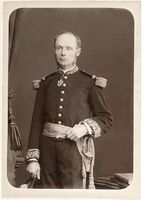 Courbet, Amédée French naval officer and colonial administrator in the nineteenth century. Courbet was Governor of Nouvelle-Calédonie from 1880 to 1882, before going on to fight in French Indochina.
Courbet, Amédée French naval officer and colonial administrator in the nineteenth century. Courbet was Governor of Nouvelle-Calédonie from 1880 to 1882, before going on to fight in French Indochina. -
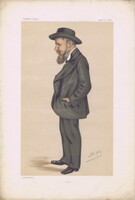 Cowen, Joseph British politician in the nineteenth century. Although a Liberal, he supported Disraeli's aggressive imperial foreign policy in Parliament.
Cowen, Joseph British politician in the nineteenth century. Although a Liberal, he supported Disraeli's aggressive imperial foreign policy in Parliament. -
Craig, Asher Deputy Mayor of Bristol with responsibility for Children's Services, Education and Equalities
-
Crauk, Gustave French sculptor in the nineteenth and early twentieth centuries.
-
Croggon, William British sculptor active in the early nineteenth century.
-
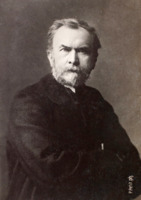 Croisy, Aristide Onésyme French sculptor in the nineteenth century.
Croisy, Aristide Onésyme French sculptor in the nineteenth century. -
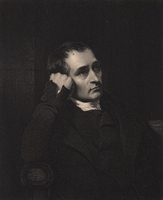 Crompton, Samuel British inventor in the eighteenth and nineteenth centuries who invented the spinning mule.
Crompton, Samuel British inventor in the eighteenth and nineteenth centuries who invented the spinning mule. -
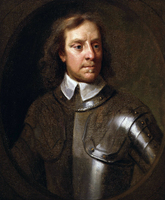 Cromwell, Oliver English military and political leader in the seventeenth century. A pivotal figure in British history, and one whose historical reputation has long been the source of debate, Cromwell's colonial legacy is symbolised by the war in Ireland (1649-1653) and the capture of Jamaica from the Spanish in 1655. Jamaica became one of Britain's wealthiest colonies through the use of enslaved African labour, with the British occupying the island for the next three centuries.
Cromwell, Oliver English military and political leader in the seventeenth century. A pivotal figure in British history, and one whose historical reputation has long been the source of debate, Cromwell's colonial legacy is symbolised by the war in Ireland (1649-1653) and the capture of Jamaica from the Spanish in 1655. Jamaica became one of Britain's wealthiest colonies through the use of enslaved African labour, with the British occupying the island for the next three centuries. -
Crook, Thomas Mewburn English sculptor in the nineteenth and twentieth centuries.
-
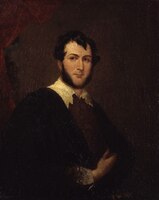 Cruikshank, George British caricaturist and book illustrator active in the nineteenth century. Cruikshank's life overlapped with contemporary political debates over the institution of slavery in the early nineteenth-century British Empire. Many of his works, such as the 'The New Union Club' (1819) and 'An Emancipated N****' (1833), were explicitly pro-slavery and racist in their depiction of Black people. In 1822, Cruikshank produced a number of caricatures satirising Richard Westmacott's colossal bronze statue of Achilles, intended as a tribute to the Duke of Wellington, which reflected many of the gendered anxieties around the nude male body in the Regency era. There are also traces of racialised depictions in these caricatures. 'Backside & Front View of the Ladies Fancy-man, Paddy Carey', for instance, depicts a woman racialised as black amidst a group of white onlookers on the right hand side.
Cruikshank, George British caricaturist and book illustrator active in the nineteenth century. Cruikshank's life overlapped with contemporary political debates over the institution of slavery in the early nineteenth-century British Empire. Many of his works, such as the 'The New Union Club' (1819) and 'An Emancipated N****' (1833), were explicitly pro-slavery and racist in their depiction of Black people. In 1822, Cruikshank produced a number of caricatures satirising Richard Westmacott's colossal bronze statue of Achilles, intended as a tribute to the Duke of Wellington, which reflected many of the gendered anxieties around the nude male body in the Regency era. There are also traces of racialised depictions in these caricatures. 'Backside & Front View of the Ladies Fancy-man, Paddy Carey', for instance, depicts a woman racialised as black amidst a group of white onlookers on the right hand side. -
Curillon, Pierre French sculptor in the nineteenth and twentieth centuries.
-
Currie, Andrew Scottish sculptor in the nineteenth century.
-
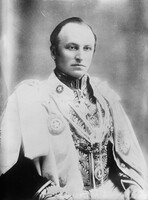 Curzon, George, 1st Marquess Curzon of Kedleston Viceroy and Governor-General of India (1899-1905).
Curzon, George, 1st Marquess Curzon of Kedleston Viceroy and Governor-General of India (1899-1905). -
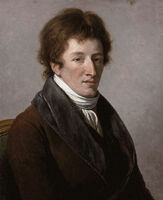 Cuvier, Georges French naturalist, zoologist and racial theorist. Cuvier was an important figure in the development of scientific racism in the eighteenth century and nineteenth centuries. He is also known for the scientific examinations and abuses he performed on a Khoikhoi woman named Sarah Baartman (1789-1815). Baartman spent her early childhood on farms in the Eastern Cape of South Africa during the period of Dutch colonial rule. In 1810, Baartman was taken - potentially by force - to London by Scottish military surgeon Alexander Dunlop and Hendrik Cesars. She was then subject to cruel racist exhibitions across Europe for the next five years, including by Cuvier himself in 1815. Baartman died in 1815, but her body was subjected to further scientific experimentation, abuse and violence after her passing. Cuvier later dissected Baartman's body and preserved her remains in the Muséum d'Histoire Naturelle. Her remains stayed in France until they were repatriated and buried in South Africa in 2002, after a request made by Nelson Mandela to the French government in 1994.
Cuvier, Georges French naturalist, zoologist and racial theorist. Cuvier was an important figure in the development of scientific racism in the eighteenth century and nineteenth centuries. He is also known for the scientific examinations and abuses he performed on a Khoikhoi woman named Sarah Baartman (1789-1815). Baartman spent her early childhood on farms in the Eastern Cape of South Africa during the period of Dutch colonial rule. In 1810, Baartman was taken - potentially by force - to London by Scottish military surgeon Alexander Dunlop and Hendrik Cesars. She was then subject to cruel racist exhibitions across Europe for the next five years, including by Cuvier himself in 1815. Baartman died in 1815, but her body was subjected to further scientific experimentation, abuse and violence after her passing. Cuvier later dissected Baartman's body and preserved her remains in the Muséum d'Histoire Naturelle. Her remains stayed in France until they were repatriated and buried in South Africa in 2002, after a request made by Nelson Mandela to the French government in 1994. -
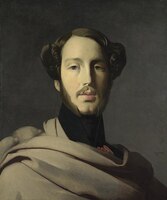 d'Orléans, Ferdinand-Philippe Prince Royal of France (1830-1842) who fought in Algeria in the 1830s and 1840s.
d'Orléans, Ferdinand-Philippe Prince Royal of France (1830-1842) who fought in Algeria in the 1830s and 1840s. -
Dabro, Ante Croatian-born Australian sculptor
-
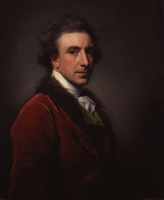 Dance-Holland, Nathaniel British painter and politician in the eighteenth and early nineteenth centuries.
Dance-Holland, Nathaniel British painter and politician in the eighteenth and early nineteenth centuries. -
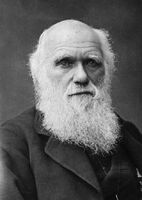 Darwin, Charles English naturalist, geologist, biologist and the founder of the theories of evolutionary biology and natural selection.
Darwin, Charles English naturalist, geologist, biologist and the founder of the theories of evolutionary biology and natural selection. -
Daumas, Louis-Joseph French sculptor in the nineteenth century.
-
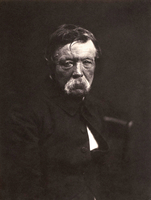 David d'Angers, Pierre-Jean French sculptor active in the nineteenth century.
David d'Angers, Pierre-Jean French sculptor active in the nineteenth century. -
Davidson, Andrew Scottish sculptor in the nineteenth and twentieth centuries.
-
Davis, Edward British sculptor in the nineteenth century.
-
Day Keyworth junior, William English sculptor in the nineteenth and early twentieth centuries.
-
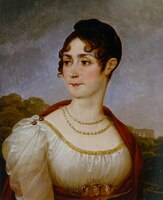 de Beauharnais, Joséphine Marie Josèphe Rose Tascher de la Pagerie was born in 1763 in Trois-Ilets, Martinique, on the family home. In 1779, at the age of 16, she married Alexandre de Beauharnais in France, from a noble family of landowners in Saint-Domingue. The marriage went badly, but the couple had two children, Hortense and Eugène. After her husband's execution in 1794, she became a prominent figure in the Directoire. It was here that she met Napoleon Bonaparte, a rising officer. They married in 1796. Although she played a central role in Bonaparte's political rise through her connections, she had little influence on his decision to re-establish slavery in 1802. Until her repudiation in 1809, Josephine was a key figure at court, helping to reconcile the regime with the former aristocratic elite. She died at the age of 51 in her estate at Malmaison.
de Beauharnais, Joséphine Marie Josèphe Rose Tascher de la Pagerie was born in 1763 in Trois-Ilets, Martinique, on the family home. In 1779, at the age of 16, she married Alexandre de Beauharnais in France, from a noble family of landowners in Saint-Domingue. The marriage went badly, but the couple had two children, Hortense and Eugène. After her husband's execution in 1794, she became a prominent figure in the Directoire. It was here that she met Napoleon Bonaparte, a rising officer. They married in 1796. Although she played a central role in Bonaparte's political rise through her connections, she had little influence on his decision to re-establish slavery in 1802. Until her repudiation in 1809, Josephine was a key figure at court, helping to reconcile the regime with the former aristocratic elite. She died at the age of 51 in her estate at Malmaison. -
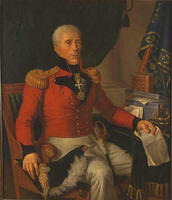 de Boigne, Benoît Colonial general who fought in India in the late eighteenth century and made a fortune from colonial land holdings there. His first marriage was to an Indian woman variously identified as 'Halime Banu', 'Nur Begam', or "Hélene Bennett". They had two children, a daughter named 'Banu' or 'Anna (1789–1804) and a son named 'Ali Bakhsh' or 'Charles Alexander' (1792-1853). Benoît de Boigne's colonial fortune enabled him to become a major philanthropist in his home town of Chambéry in Savoie. His brother Claude Pierre Joseph Leborgne de Boigne (1762-1832) was a colonial administrator in Santo Domingo.
de Boigne, Benoît Colonial general who fought in India in the late eighteenth century and made a fortune from colonial land holdings there. His first marriage was to an Indian woman variously identified as 'Halime Banu', 'Nur Begam', or "Hélene Bennett". They had two children, a daughter named 'Banu' or 'Anna (1789–1804) and a son named 'Ali Bakhsh' or 'Charles Alexander' (1792-1853). Benoît de Boigne's colonial fortune enabled him to become a major philanthropist in his home town of Chambéry in Savoie. His brother Claude Pierre Joseph Leborgne de Boigne (1762-1832) was a colonial administrator in Santo Domingo. -
de Champlain, Samuel French soldier, author and explorer who went to Mexico, Panama and North America in the early seventeenth century. de Champlain a été deux fois gouverneur de la Nouvelle-France (1626-1629 ; 1633-1635).
-
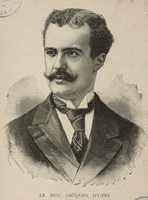 de Crussol, Jacques French colonial explorer in late nineteenth century Africa.
de Crussol, Jacques French colonial explorer in late nineteenth century Africa. -
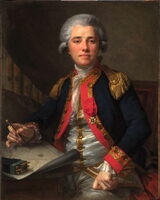 de Galaup, compte de La Pérouse, Jean-François Officier de marine et un explorateur colonial français du XVIIIe siècle.
de Galaup, compte de La Pérouse, Jean-François Officier de marine et un explorateur colonial français du XVIIIe siècle. -
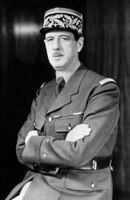 de Gaulle, Charles French army officer and statesman in the twentieth century. de Gaulle was the leader of Free France (1940-1944) and Chairman of the Provisional Government of the French Republic (1944-1946) during the Second World War, and later Prime Minister of France (1958-1959) and President of France (1959-1969).
de Gaulle, Charles French army officer and statesman in the twentieth century. de Gaulle was the leader of Free France (1940-1944) and Chairman of the Provisional Government of the French Republic (1944-1946) during the Second World War, and later Prime Minister of France (1958-1959) and President of France (1959-1969). -
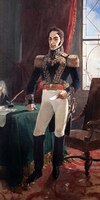 de la Santísima Trinidad Bolívar y Palacios, Simón José Antonio Venezuelan military and political leader in the eighteenth and nineteenth centuries.
de la Santísima Trinidad Bolívar y Palacios, Simón José Antonio Venezuelan military and political leader in the eighteenth and nineteenth centuries. -
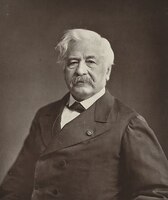 de Lesseps, Ferdinand French diplomat and entrepreneur in the nineteenth century. de Lesseps was the developer of the Suez Canal (1854-1869) and also led the first attempt to build the Panama Canal (1879-1888), which ended in failure.
de Lesseps, Ferdinand French diplomat and entrepreneur in the nineteenth century. de Lesseps was the developer of the Suez Canal (1854-1869) and also led the first attempt to build the Panama Canal (1879-1888), which ended in failure. -
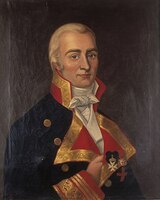 de Liniers, Jacques Spanish military officer and viceroy in the eighteenth and early nineteenth centuries. de Liniers was Viceroy of the Río de la Plata from 1807 to 1809.
de Liniers, Jacques Spanish military officer and viceroy in the eighteenth and early nineteenth centuries. de Liniers was Viceroy of the Río de la Plata from 1807 to 1809.